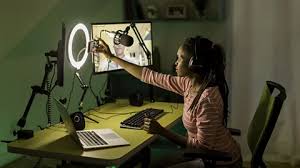Digital content creators are tapping into a new revenue stream by selling their unused video footage to artificial intelligence companies. These companies, including OpenAI, Google, and AI media firm Moonvalley, are paying creators between $1 and $4 per minute for exclusive, unpublished content, which is highly valuable for training AI algorithms.
The demand for unique video content is driven by the growing need for vast amounts of data to train AI systems. Companies developing AI video generators, such as OpenAI, Meta, and Adobe, rely on millions of hours of footage to improve their models, which can generate realistic videos from simple text prompts.
High-quality videos, especially those shot in 4K or using specialized formats like drone footage or 3D animation, command higher prices. The majority of deals fall within the $1 to $2 per minute range for standard unused content from platforms like YouTube, Instagram, and TikTok.
Dan Levitt, senior VP at Wasserman, notes the urgency among AI firms to secure as much footage as possible. “It’s an arms race and they all need more footage,” Levitt said.
Many content creators produce hours of video that never make it online, offering a chance to monetize this unused footage. AI companies like Moonvalley are actively sourcing content directly from creators and filmmakers, offering a new way for creators to diversify income beyond traditional brand deals.
However, this trend arises amid criticism of AI companies for using publicly posted content without compensation. Legal battles have ensued, with creators, news publishers, and actors filing lawsuits against major AI firms for alleged copyright violations. Licensing agreements now offer a more structured, legal avenue for creators to profit from their work.
Talent agencies and third-party licensing firms like Troveo AI are stepping in to manage these deals, ensuring creators are fairly compensated while protecting their rights. “Our greatest concern as agents is that we are making sure our clients are being appropriately compensated and protected,” said Andrew Graham of Creative Artists Agency.
























































